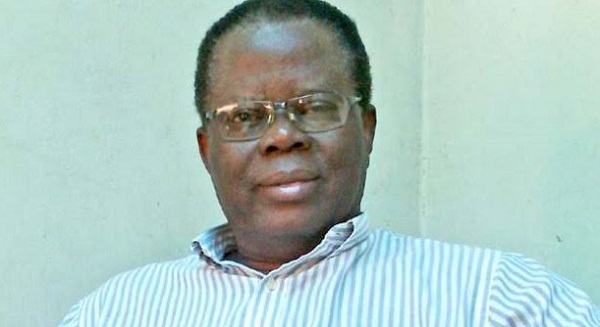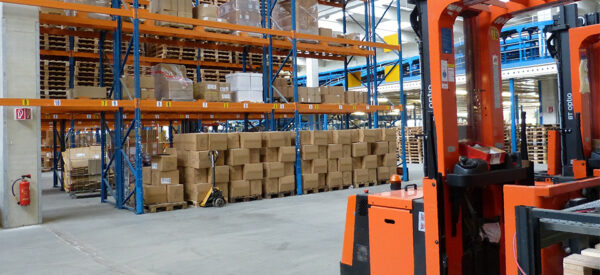How Pilots Can Survive Emergence Of Self-Flying Planes – Porbeni

By Okuneye Moyosola
Capt. Prekeme Porbeni is a retired Pilot and a Former Director of Operations of the Defunct Nigerian Airways. In this interview with MMS Plus newspaper, Capt. Porbeni sets the 2020 agenda for the nation’s aviation industry, analysing the relevance of an independent Aviation ministry, the effects of increased Value Added Tax (VAT), among other pertinent aviation industry issues.
Excerpts:
The aviation Industry is no longer under the Ministry of Transportation but independent as Ministry of Aviation. How can this avaition industry maximize such development to function effectively in terms of policy formulation and infastructure development?
The frequent repositioning of this ministry is a clear indication of our prevarication on such heavy national issues, reflecting our penchant for pursuing shadows in attempts to satisfy private agendas. Where this ministry is placed would be irrelevant if we have transparent intentions and our overbearing bureaucratic red tapes are absent. Some countries do not even have an aviation ministry at all, yet they function better than we do.
History has shown that we would not necessarily function better in this situation. There are also indications that we would only maximize the intended agenda as the possible dictatorial organs would have been enhanced. With the Ministry of Aviation being independent, memos can go straight from the Minister who would have dictated what he wants to the beaurocrats to the Federal Executive Council (FEC) having convincingly briefed the President in advance for easy accent. This route is ideal where sincerity of purpose is entrenched and there is a board of technocrats through whom the Minister would have objectively screened the contents of the memo for vital national interest. Effectiveness of the process is not in question but objectivity is.
The recent increase in Value Added Tax (VAT) has been projected to cause an increase in airfares. Despite several promises by the government to exempt airlines from remitting VAT, the airlines weren’t exempted. What’s your perspective on this?
Increase in airfares is basically justified in the sense that the nation has been using the airlines to dodge fixing our road network. Many Nigerians who fly today should have been going by road.
For instance, Lagos to Lome by air is over N100,000 Naira while by road is about N20,000 but people are scared to go by road due to the unnecessary and intimidating numerous checkpoints. This is in addition to the extremely bad roads have scared people from traveling by road.
Government’s failed promises are a result of faulty researched advice they received from lazy technocrats who are aware that there is no sanction for failure in this country. It is therefore obvious that if the government wants to get out of this mess of lackluster performance, it should revamp the technocrats and all those responsible in the civil service and apply sanctions for failures.
On the issue of establishing a national carrier, some stakeholders are of the opinion that the two strong airlines in the country, Arik Air and Aero Contractor should be merged. However, others are of the opinion that establishing a new national carrier would be better. What’s your take on this sir?
I had stated before and I state again that the government does need to get involved in the micromanaging of the establishment of a national air carrier. From the look of things in this regard, even if I had the knowledge and funds to establish a mega airline, our government would still want to establish a national carrier simply because the powers that be do not trust that I can be patriotic enough to be doing it objectively for my country.
Even if we place those two airlines together as national carrier, failure is still likely because of the stranglehold way it will be managed.
National carrier is a destination and not a planet. She is an airline of local registration designated a national airline with attached privileges to enable her to negotiate the commercial clauses in the BASA (bilateral air services agreements). A willing government can designate even a small airline as such and enable it to grow from the privileges attached to the designation. This government does not need to spend money on the national airline issue as there is no need to establish one, just designate one from among the domestic ones we have, preferably the best performing one and hand this airline the relevant national policy.
Technology has brought about the development of self flying airplanes that do not need pilots. In Nigeria, we also have several unemployed pilots roaming around. Does this development pose more threats to the already high unemployment rate of pilots both in Nigeria and around the world?
First, there is no justification for qualified pilots to be roaming the streets especially if we have foreigners flying for local airlines and we do. With the right government backed policy and intensive training and supervision, this situation can be corrected within four to five years.
Drones will not replace human pilots in the commercial airlines anytime soon. The last attempt was stoutly rejected by the flying public and that mindset has not changed yet.
Air passengers still complain that international airports apply a different set of standards for African travellers. This also includes extra security checks at the airports. How can this act of discrimination be eliminated at the airports?
A simple application of the ethics of reciprocity can solve this anomaly within a very short time. We have tried this before with dramatic success. The collaboration between our Airport Authority, the consumer protection department of Nigerian Civil Aviation Authority (NCAA) and the Airlines is what we need. Yes we can.
What are your expectations for the Nigerian aviation Industry in the year 2020?
The present Minister of Aviation, Senator Hadi Sirika seems to be trying hard to allign with the obviously good intention and vision of President Mohammadu Buhari, but my expectations for the Nigerian aviation industry for 2020 is at best categorized as cautious optimism.
This is due to the observation of injection into the strategic positions with mediocre personnel who would not deliver the desired quality service, knowing that there will be no sanctions for failure. We can only wait to possibly lament as usual after the damage sponsored by trial and error syndrome.







